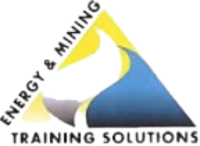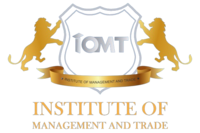
This role has a low level of AI exposure. Core skills such as adaptability, social intelligence, and complex physical tasks remain beyond the capabilities of current AI.
Explore all careersA Workshop Supervisor manages daily workshop operations, ensuring safety, quality, and timely completion of tasks, while leading and organising staff.
Get qualified to work as a Workshop Supervisor with a course recognised across Australia. Speak to a training provider to learn more.








In Australia, a full time Workshop Supervisor generally earns $2,200 per week ($114,400 annual salary) before tax. This is a median figure for full-time employees and should be considered a guide only. As you gain more experience you can expect a potentially higher salary than people who are new to the industry.
 Courses.com.au Team
Courses.com.au Team
This number of people working in this field is likely to grow strongly in coming years. There are currently 31,400 people employed in this industry in Australia and many of them specialise as a Workshop Supervisor. Workshop Supervisors may find work across all regions of Australia.
Source: Australian Government Labour Market Insights
 Courses.com.au Team
Courses.com.au Team
If you’re planning a career as a Workshop Supervisor, consider enrolling in a Certificate IV in Engineering. This course will develop your skills with ferrous and non-ferrous melting and casting operations, testing foundry related materials and advanced welding to code standards. A Certificate III in Engineering – Mechanical Trade may also be suitable.
 Courses.com.au Team
Courses.com.au Team
Browse occupations related to Workshop Supervisor



For those seeking to enhance their career in engineering and management, the Workshop Supervisor courses in Western Australia offer an exceptional opportunity. With both beginner courses such as the Certificate II in Outdoor Power Equipment Technology AUR20820 and the Hybrid Electric Vehicle Inspection and Servicing Skill Set AURSS00037, as well as advanced qualifications like the Certificate IV in Engineering MEM40119 and the Certificate IV in Aeroskills (Mechanical) MEA40718, learners can choose a path that best suits their experience and career goals. These courses are delivered by esteemed training providers such as Hydraskills and NMTAFE in various locations throughout Western Australia.
In addition to gaining essential qualifications, the Workshop Supervisor courses in Western Australia provide students with valuable insights into related job roles that facilitate career advancement. Potential career paths include that of a Telecommunications Technician, Mechanical Fitter, and Electrical Engineer, among others. Each of these positions plays a crucial role in the vast engineering landscape of Western Australia, particularly in burgeoning sectors such as manufacturing and electrical engineering.
With a robust framework for learning and development, individuals pursuing Workshop Supervisor courses in Western Australia gain access to comprehensive training that is not only industry-recognised but also aligns with their aspirations in engineering. Those aiming to delve into specialties like Manufacturing Engineering or Electrical Engineering will find these courses particularly beneficial. Start your journey towards becoming a Workshop Supervisor today and explore the diverse range of opportunities that shape Australia’s engineering workforce.